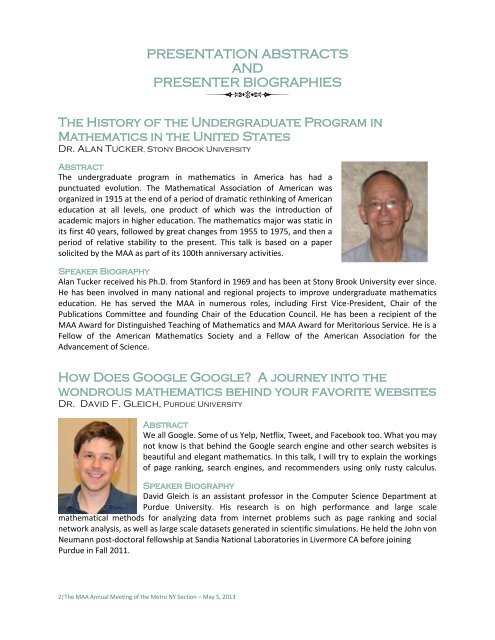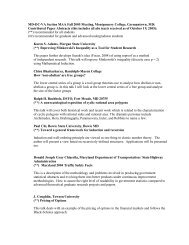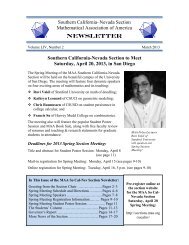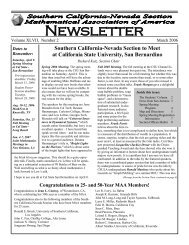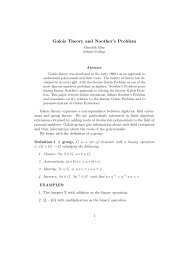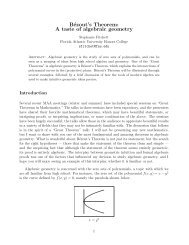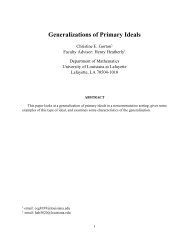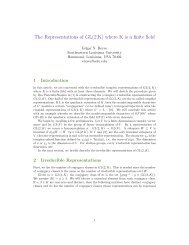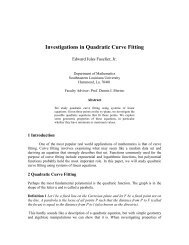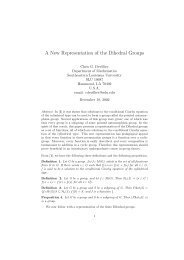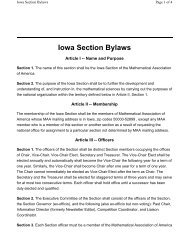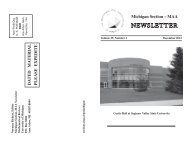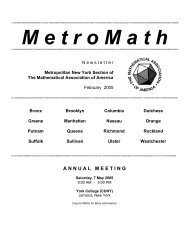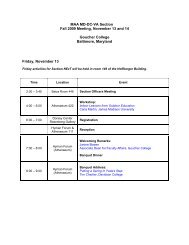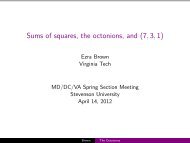Complete conference program (pdf) - MAA Sections - Mathematical ...
Complete conference program (pdf) - MAA Sections - Mathematical ...
Complete conference program (pdf) - MAA Sections - Mathematical ...
Create successful ePaper yourself
Turn your PDF publications into a flip-book with our unique Google optimized e-Paper software.
PRESENTATION ABSTRACTSANDPRESENTER BIOGRAPHIESThe History of the Undergraduate Program inMathematics in the United StatesDr. Alan Tucker, Stony Brook UniversityAbstractThe undergraduate <strong>program</strong> in mathematics in America has had apunctuated evolution. The <strong>Mathematical</strong> Association of American wasorganized in 1915 at the end of a period of dramatic rethinking of Americaneducation at all levels, one product of which was the introduction ofacademic majors in higher education. The mathematics major was static inits first 40 years, followed by great changes from 1955 to 1975, and then aperiod of relative stability to the present. This talk is based on a papersolicited by the <strong>MAA</strong> as part of its 100th anniversary activities.Speaker BiographyAlan Tucker received his Ph.D. from Stanford in 1969 and has been at Stony Brook University ever since.He has been involved in many national and regional projects to improve undergraduate mathematicseducation. He has served the <strong>MAA</strong> in numerous roles, including First Vice-President, Chair of thePublications Committee and founding Chair of the Education Council. He has been a recipient of the<strong>MAA</strong> Award for Distinguished Teaching of Mathematics and <strong>MAA</strong> Award for Meritorious Service. He is aFellow of the American Mathematics Society and a Fellow of the American Association for theAdvancement of Science.How Does Google Google? A journey into thewondrous mathematics behind your favorite websitesDr. David F. Gleich, Purdue UniversityAbstractWe all Google. Some of us Yelp, Netflix, Tweet, and Facebook too. What you maynot know is that behind the Google search engine and other search websites isbeautiful and elegant mathematics. In this talk, I will try to explain the workingsof page ranking, search engines, and recommenders using only rusty calculus.Speaker BiographyDavid Gleich is an assistant professor in the Computer Science Department atPurdue University. His research is on high performance and large scalemathematical methods for analyzing data from internet problems such as page ranking and socialnetwork analysis, as well as large scale datasets generated in scientific simulations. He held the John vonNeumann post-doctoral fellowship at Sandia National Laboratories in Livermore CA before joiningPurdue in Fall 2011.2|The <strong>MAA</strong> Annual Meeting of the Metro NY Section – May 5, 2013


